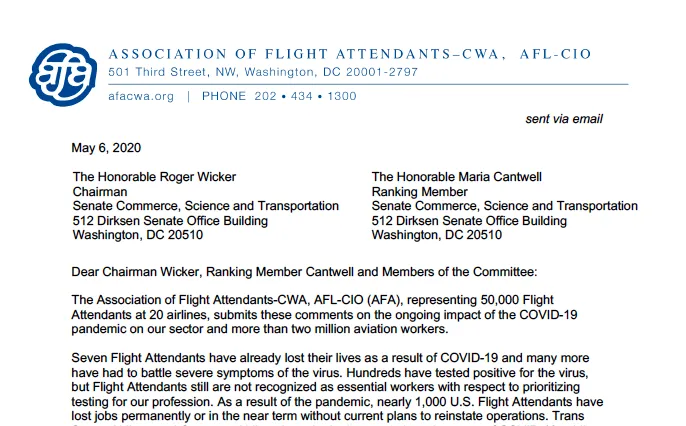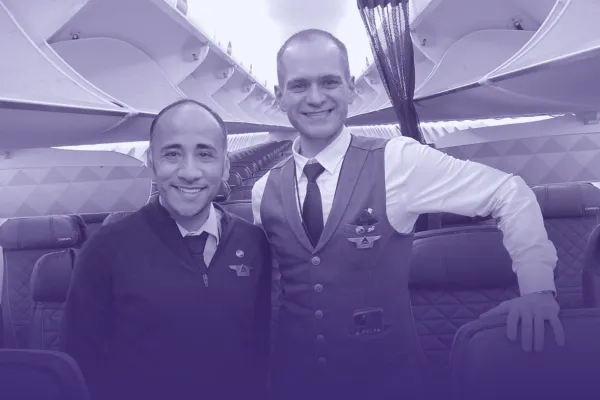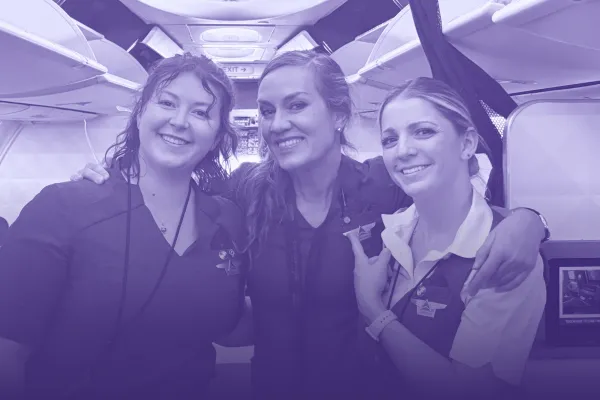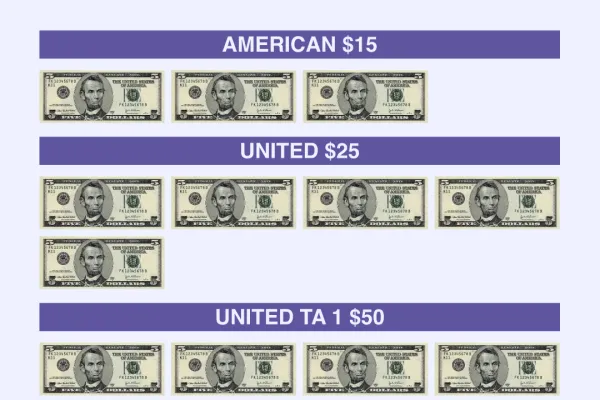AFA Letter to Senate Commerce on the State of the Aviation Industry During COVID-19 Pandemic

May 6, 2020 | PDF Version
The Honorable Roger Wicker
Chairman
Senate Commerce, Science and Transportation
512 Dirksen Senate Office Building
Washington, DC 20510
The Honorable Maria Cantwell
Ranking Member
Senate Commerce, Science and Transportation
512 Dirksen Senate Office Building
Washington, DC 20510
Dear Chairman Wicker, Ranking Member Cantwell and Members of the Committee:
The Association of Flight Attendants-CWA, AFL-CIO (AFA), representing 50,000 Flight Attendants at 20 airlines, submits these comments on the ongoing impact of the COVID-19 pandemic on our sector and more than two million aviation workers.
Seven Flight Attendants have already lost their lives as a result of COVID-19 and many more have had to battle severe symptoms of the virus. Hundreds have tested positive for the virus, but Flight Attendants still are not recognized as essential workers with respect to prioritizing testing for our profession. As a result of the pandemic, nearly 1,000 U.S. Flight Attendants have lost jobs permanently or in the near term without current plans to reinstate operations. Trans States Airlines and Compass Airlines have both shuttered since the onset of COVID-19, while Norwegian closed U.S. Flight Attendant bases at the end of March (Flight Attendants have contractual recall rights for 2 years if operations resume) and Cathay Pacific announced it will end U.S. based operations as of June 20, 2020. Longtime charter carrier Miami Air, serving the U.S. military and profession sports teams among other clients, filed for bankruptcy on March 24, 2020, solely as a result of the pandemic. The carrier is still waiting for Treasury to respond to its application for payroll grants to support 350 jobs in the Miami area.
Payroll Support Program
The dedicated, highly-trained and credentialed workforce that run our airports and our airlines are central to our country’s efforts to contain the coronavirus and facilitate economic recovery. To that end, this Committee played a central role in providing carriers and aviation contractors with billions of dollars exclusively to maintain payroll and benefits of aviation workers, and ensure that our sector is ready to fly. Your review of and attention to implementation of aviation support programs in the Coronavirus Aid, Relief, and Economic Security (CARES) Act is important to ensure that this money is used as Congress intended.
The aviation industry is in free-fall. The most recent reports suggest that air travel is down by 95% year over year. It is a disruption without precedent or comparison in the history of the industry. It is why in early March, when the pandemic had just started to take hold in the United States, AFA worked closely with members of this committee to put together a proposal for an historic workers’ first relief package to save our jobs. This workers’ first package ensures aviation workers continue collecting a paycheck, stay connected to our health care, and remain ready to take off again as soon as the threat of the pandemic is contained.
The final bill includes $25 billion in payroll grants to be used exclusively for the wages, salaries, and benefits of 750,000 airline workers, and the requirement that any airline receiving the payroll grants must refrain from involuntary furloughs or reduction of pay rates or benefits through September 30, 2020. Congress also required any carrier that receives payroll grants refrain from share repurchases and dividend payments through September of 2021 and placed limits on executive compensation. Finally, to ensure that the aviation industry continues to provide essential service to all communities, carriers who receive payroll grants must maintain scheduled levels of air transportation deemed necessary by the Secretary of Transportation. AFA and other aviation unions strongly supported these critical provisions to ensure accountability and protect American taxpayers.
Two issues undercut the value of the payroll support program for workers. First, the act defined the carrier eligibility for payroll grant apportionment by pay and benefit data from April 2019 through September 2019. This data equals a total of $31 Billion to cover these costs. Treasury determined the fair approach was to prorate each airline’s payroll grant allocation to 76% of the requested amount. Treasury also exercised the option to under the Act to attach financial instruments to the grants and require 30% of the payroll grant over $100 million be treated instead as a loan. Together these actions by Treasury resulted in a $12 billion shortfall for worker pay and benefits. Approximately 40,000 Flight Attendants across the industry, nearly 35 percent of the entire U.S. Flight Attendant workforce, have taken voluntary leaves to help ensure that payroll grants are able to support those who remain on active status. We encourage Congress to address this shortfall in order to ensure workers do not shoulder the debt created by Treasury with lost jobs in October 2020.
Involuntary Reduction in Hours Side-Steps Congressional Intent for CARES
We appreciate the overwhelmingly positive partnership with carriers of all sizes that have worked to closely follow the statutory obligations of the Act and meet their ongoing obligations to workers. Despite the clear statutory language in the CARES Act requiring carriers who receive payroll grants to maintain pay levels and benefits, a small number of carriers are attempting to flout the Act and cheat workers. These outliers have accepted federal payroll grant dollars while slashing hours and pay, in clear violation of Congressional intent and the express language of the CARES Act. Delta Air Lines was the first out of the gate with cuts to hours and worker take home pay. The carrier made the decision to cut ground crew hours by as much as 40% without consulting with workers and set in motion a vicious and escalating pattern of cuts considered by other airlines. Delta Air Lines Flight Attendants have asked their management to commit to a minimum number of monthly hours equivalent to the amount delineated in the Flight Attendant contract of Delta’s closest industry comparator, but to date Delta management has refused to do so, making clear its plans to slash Flight Attendant hours and benefits below established industry minimum standards as well.
The goal of these illegal payroll cuts is clearly to hoard grant dollars until after September 30, when the prohibition against involuntary furloughs and layoffs of workers ends. Slash hours now, fire workers in October, and stockpile billions of dollars that was intended for workers in order to subsidize ongoing airline operations and gain a competitive advantage over any carrier that used the funds as intended to maintain jobs, paychecks and benefits. If left unchecked by Congress, the Treasury Department, and other oversight bodies, the result will be a race to the bottom, penalizing companies that do right by their workers in disbursing payroll grants to workers as Congress intended.
Forcing workers to take unpaid time off or involuntary reductions in hours is a violation of the Act, which forbids any involuntary furloughs or reduction in worker pay and benefits. If carriers want workers to consider taking time off, they must create voluntary programs that are not in violation of the CARES Act.
Treasury’s Response
Despite Congress’s clear intent to use the payroll grant program to maintain jobs, pay levels and benefits for airline workers through September 30th, Treasury has not responded to requests for guidance to carriers to advise that slashing hours is a violation of the grant program. Their silence on this issue, which guts the core of the program, is deafening. Absent pressure and vigorous oversight from Congress, and from members of this committee in particular, Treasury will continue to stand by while workers receive 25% pay cuts or greater, and a few carriers set off this dangerous race to the bottom.
The members of this committee should press officials at Treasury to enforce provisions of the CARES Act as Congress intended. Ten days ago, AFA-CWA sent Treasury sample guidance to aid in its enforcement of this provision and to help Treasury clarify the terms of program participation for all carriers:
May a carrier or contractor reduce hours prior to September 30, 2020?The Treasury interprets the requirement not to reduce pay rates prior to September 30, 2020 to mean that a full-time employee must be paid for the number of hours routinely assigned to full-time employees prior to March 1, 2020, excluding hours for overtime. A part-time employee must be paid the average number of hours routinely assigned to that employee prior to March 1, 2020.
What benefits are carriers and contractors required to provide? Carriers and contractors must maintain all benefits paid prior to March 1, 2020, including health care, contributions to retirement accounts, and any other benefits.
Treasury’s failure to post guidance on this issue, and their failure to question carriers’ recent public decisions to cut hours and force workers to take unpaid time off is jeopardizing the work Congress did to save jobs, maintain pay and benefits, and sustain the ability of these workers to pay their bills and contribute to the economy. Congress should bring any airline CEOs who cut hours before the committee to ask why they have slashed hours, despite taking taxpayer dollars intended to keep workers fully paid through the end of September.
We also urge Congress to continue to exercise its oversight authority to ensure that Treasury makes timely payments to participating carriers to get workers paid. In recent weeks, several airlines have struggled to connect with Treasury and faced confusion and delay as they work to participate in the program. With financial pressures mounting, it is vital that Treasury maintain clear lines of communication and commit to timely distribution of payroll grants.
Safety
In addition to the payroll grants, the AFA has also worked to ensure that our workforce and our passengers are safe on the job and in the air. Although flights are significantly reduced, new procedures are necessary to minimize risk of spreading the virus in aviation. We are happy to report that many carriers, including Frontier, jetblue, Delta, American, United, and Alaska have announced that all passengers and crew will be required to wear masks in-flight.
However, the safety of passengers and crew should not depend solely on the judgment of individual airlines. The Administration should put in place an emergency rule to mandate masks for crew, employees and passengers; require personal protective equipment provisions for crew; ensure safe cleaning and disinfecting between all flights; require social distancing policies in airports and airplane cabins; and communicate guidance from healthcare authorities from ticket purchase to check-in, security check points, and throughout airplane boarding. Aviation workers, who have already been hit hard by the virus, should not have to choose between their health and their paychecks. Members of the public must also feel safe for air travel to resume.
We encourage this committee to work with the Secretaries of the Department of Transportation and the Health and Human Services to quickly promulgate an emergency pandemic safety standard for air travel, similar to the process used to put in place new security procedures after September 11, 2001.
After September 30th
When the AFA worked to include payroll support grants in the CARES Act in early March, our goal was to stop the immediate financial harm to airline workers as a result of the cliff drop in air travel demand. It is now clear that the impact of the pandemic on air travel will stretch far longer than September 30th, the expiration date of the payroll support program. Between now and then, our union looks forward to working with members of this committee and the other industry stakeholders to put in place the second phase of a workers’ first relief package. All options should be on the table for this phase two package, including fully restoring phase one of $25 billion in payroll grants and extending the program if air travel demand remains weak.
Conclusion
We thank the Chairman, the Ranking Member and the Members of this Subcommittee for your efforts to maintain our jobs and secure our industry in the face of this crisis. We are proud to serve as aviation’s first responders, doing the essential work that keeps our country connected during this emergency and ready to lift our economy again with the confidence of the traveling public. We appreciate your efforts to ensure our jobs remain in place as we work together to keep U.S. aviation safe and secure.
Respectfully submitted,
Sara Nelson
International President
Association of Flight Attendants-CWA, AFL-CIO
cc: Members of the Senate Commerce, Science and Transportation Committee



